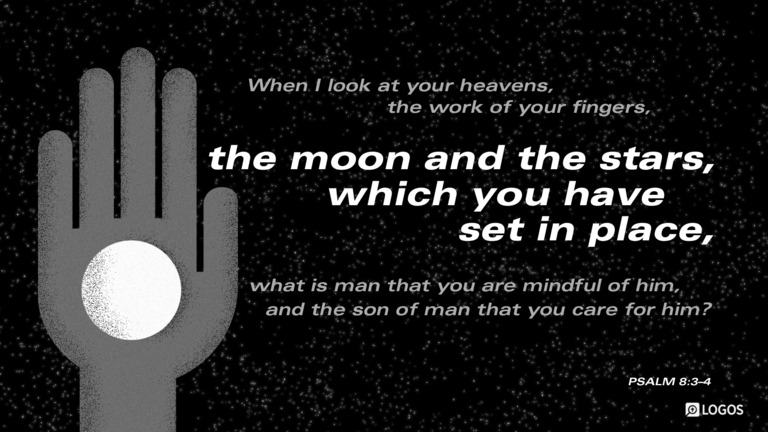Daily Verse Psalm 8:3-4
- Thread starter SCAdmin
- Start date
You are using an out of date browser. It may not display this or other websites correctly.
You should upgrade or use an alternative browser.
You should upgrade or use an alternative browser.
8:3 your heavens Psalms often express praise for God as the Creator (Pss 33:6–7; 104:1–30). These praises are meant to inspire awe and respect at Yahweh’s sovereign power (33:8–9).
your fingers The finger of God symbolizes His power: Pharaoh’s magicians attributed the third plague to the finger of God (Exod 8:19); the finger of God wrote the law on stone tablets (Exod 31:18; Deut 9:10); and in the nt, Jesus cast out demons by the finger of God (Luke 11:20).
8:4 that you think of him The psalmist marvels that God—the supreme Creator—involves Himself with humanity.
Job uses a similar phrase but with a different emphasis. Instead of wondering at God’s care, Job—in the midst of his suffering—wishes God would leave him alone (Job 7:17–21).
Barry, J. D., Mangum, D., Brown, D. R., Heiser, M. S., Custis, M., Ritzema, E., … Bomar, D. (2012, 2016). Faithlife Study Bible (Ps 8:3–4). Bellingham, WA: Lexham Press.
8:3–4 The vastness of creation is contrasted with the smallness and insignificance of a human being. This is in the form of a question: How is it that God would remember and look after (both words mean “pay attention to and care for”) people? This is perplexing in light of the difference between the size and scope of the cosmos and the relative puniness of humanity. The terms “human being” and son of man are parallel and are used to describe humankind as a collective whole (146:3; Nm 23:19; Is 51:12).
Warstler, K. R. (2017). Psalms. In E. A. Blum & T. Wax (Eds.), CSB Study Bible: Notes (p. 823). Nashville, TN: Holman Bible Publishers.
3, 4. The allusion to the magnificence of the visible heavens is introduced for the purpose of illustrating God’s condescension, who, though the mighty Creator of these glorious worlds of light, makes man the object of regard and recipient of favor.
4. man—literally, “frail man,” an allusion to his essential infirmity.
son of man—only varies the form of speech.
visitest—in favor (Ps 65:10). This favor is now more fully illustrated.
Jamieson, R., Fausset, A. R., & Brown, D. (1997). Commentary Critical and Explanatory on the Whole Bible (Vol. 1, p. 349). Oak Harbor, WA: Logos Research Systems, Inc.

